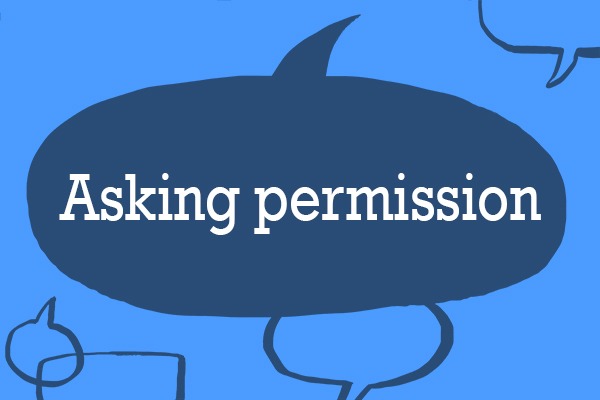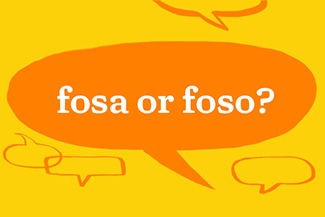In this month’s edition of our Learning French conversation blog, can we look at the most important expressions of permission? Would that be OK?
In all sorts of situations, whether you need to be polite or very casual, the concept of asking someone for permission to do something is a necessity for conversation.
In this blog, we’ll look at the French verbs which express the idea of asking for permission, as well as some common responses you might hear. May we begin?
First of all, you might need a reminder on how to formulate questions – the backbone of asking permission for something. Our French conversation blog on asking questions may be a helpful read if you need to refresh your memory. In summary, there are three main structures that you’ll need to know fairly well.
Just to illustrate, we’ll use the question ‘Do you have a pen?’ (where the verb is ‘have’, making the question ‘do you have…?’).
For your question structure, you can use either:
- ‘Est-ce que…’ meaning ‘is it that…?’ : Est-ce que tu as un stylo ?
- Inversion of the verb: As-tu un stylo ?
- Using ‘upwards’ question intonation on a statement: Tu as un stylo ?
These three constructions go from most to least formal.
1. Using pouvoir to ask for permission: can I…?; would I be able to…?
After our quick recap of questions, we’ll look at the main verbs or expressions you might use to ask if you can do something. In English, we often say:
- Can I…?
- Would I be able to…?
- Is it OK if…?
- Do you mind if…?
Most similar to the English modal verb ‘can’ is the verb pouvoir, which means ‘to be able’. For more information about this verb, we recommend reading our Word of the Week blog on pouvoir.
To illustrate, we’ll first look at a word-for-word translation:
- Est-ce qu’on peut s’asseoir n’importe où ? Is it that we are able to sit anywhere?
But to simplify things, think of it like this in English: Can we sit anywhere?
Here are some more examples of asking for permission using pouvoir:
- Est-ce que je peux payer par carte ? Can I pay by card?
- Est-ce que nous pouvons prendre cette chaise ? Can we take this chair?
- Est-ce qu’on peut laisser nos valises ? Can we leave our suitcases?
As we mentioned earlier, the question structure you need to use with pouvoir really depends on the level of formality and who you’re talking to. But in most situations, ‘est-ce que’ will be suitable.
2. Using se déranger to ask for permission: can I…?; would I be able to…?
While pouvoir is likely to be the verb you hear and use most often when seeking permission for something in French, there are other options which may come across as a bit more natural or informal (though still polite), for example:
se déranger to bother (oneself)
We can translate this in various different ways in English:
- Would it bother you…?
- Would you mind…?
- Is it OK…?
Est-ce que ça vous dérange si je prends cette chaise ? Would it bother you if I take this chaise?
Est-ce que ça vous dérange si je fume ? Would you mind if I smoke?
On vous dérange ? Would you mind?
3. Reponses to asking for permission
We would hope that most people would gladly approve your request, but no matter how polite you are, you might still get a rejection!
Aside from the most basic possibility of oui (yes) or non (no), let’s look at examples of what you might hear in response to asking for permission:
Bien sûr ! Of course!
Vas-y. Go ahead (less formal)
Allez-y. Go ahead (more formal)
Oui, c’est possible. Yes, it’s possible.
Non, ce n’est pas possible. No, it’s not possible.
Tu (ne) peux (pas)… You can(not)… (less formal)
Vous (ne) pouvez (pas)… You can(not)… (more formal)
On ne vous permet pas (de faire…) We cannot allow you (to do…) (very formal, formed from the verb permettre)
Written by Holly Tarbet, freelance copywriter and editor.
All opinions expressed on this blog are those of the individual writers, and do not necessarily reflect the opinions or policies of Collins, or its parent company, HarperCollins.



